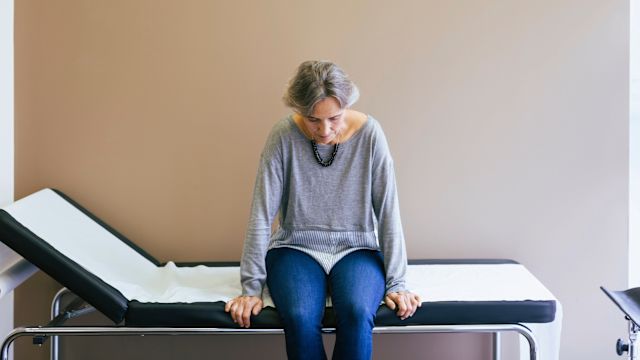Updated on May 15, 2025
Cancer-related fatigue or “cancer fatigue” refers is severe exhaustion, tiredness, weakness, and lack of energy that occurs as a result of having cancer. Unlike normal tiredness, cancer fatigue is not relieved by rest or sleep and occurs for prolonged periods of time, interfering with a person's ability to perform normal daily activities and quality of life.
Cancer fatigue is common among people diagnosed with endometrial cancer, or cancer that begins in the cells of the inner lining of the uterus (called the endometrium). Endometrial cancer is most common in people over the age of 60 who have experienced menopause, though it can and does occur at other ages.
How does endometrial cancer contribute to fatigue?
Cancer affects a person's health in multiple ways, and cancer fatigue is often caused by multiple contributing factors.
- To fuel their growth, cancer cells take nutrients and other resources away from healthy cells, which can deplete the body’s energy levels.
- Surgery, radiation therapy, chemotherapy, hormone therapy, and immunotherapy used to treat endometrial cancer can all contribute to fatigue.
- Endometrial cancer and its treatments can also contribute to anemia (low red blood cell count) and inflammation, which can contribute to fatigue.
- There is also the fact that living with cancer is mentally and emotionally demanding. Pain, stress, anxiety, and low moods are common among people with cancer, and these can contribute to or worsen fatigue.
- Cancer and cancer treatment can cause symptoms like nausea and GI distress, which can make it difficult to eat enough.
- Reductions in activity levels can be another contributing factor.
- Sleep disturbances are also common, and lack of sleep will often result in fatigue.
How can you cope with cancer fatigue?
If you are experiencing cancer fatigue, your first step should be talking to your healthcare team.
Discussed above, cancer fatigue can have several contributing factors. Your cancer care team can help you identify the factors that are contributing to your fatigue, and help you take steps to manage fatigue. For example, medicines to help with pain control, to improve sleep, or to increase alertness.
Here are strategies that may help you cope with cancer fatigue:
- Manage your energy. Plan your days and schedule the tasks and activities that are most important for the times of day where you usually have the most energy.
- Nutrition. Make sure you are eating enough calories, protein, and nutrients to support your body during treatment. Talk to your cancer care team about what you typically eat, what you should be eating, and any difficulty eating.
- Stay hydrated. Drink plenty of water and clear fluids throughout the day.
- Get enough sleep. And talk to your healthcare team if you are having difficulty getting enough restful sleep.
- Physical activity. Light to moderate exercise can help reduce fatigue. Talk to your healthcare team about activities to avoid, limitations, safety, and what they recommend.
- Stress management. Techniques such as deep breathing, meditation, or gentle yoga can help reduce stress and improve energy levels.
- Work with a mental health professional. A counselor or therapist can help you navigate the mental and emotional challenges of living with cancer.
- Participate in a support group. Sharing experiences with other people living with cancer can also help with the mental and emotional challenges.
- Ask for and accept help. Be honest with your friends and loved ones about what you are experiencing. Having people to help out with the things you do not have the energy for can make a difference.
Sometimes, describing fatigue can be difficult. Fatigue can be a different experience for different people. It can help to keep a journal where you keep notes on your energy levels, your day-to-day activities, what you eat, what has been difficult, and what has been on your mind. Use any method that works for you, but keep the format something that you can easily refer back to later. This can help you identify patterns in how you feel and may help you identify things that help you manage fatigue.






